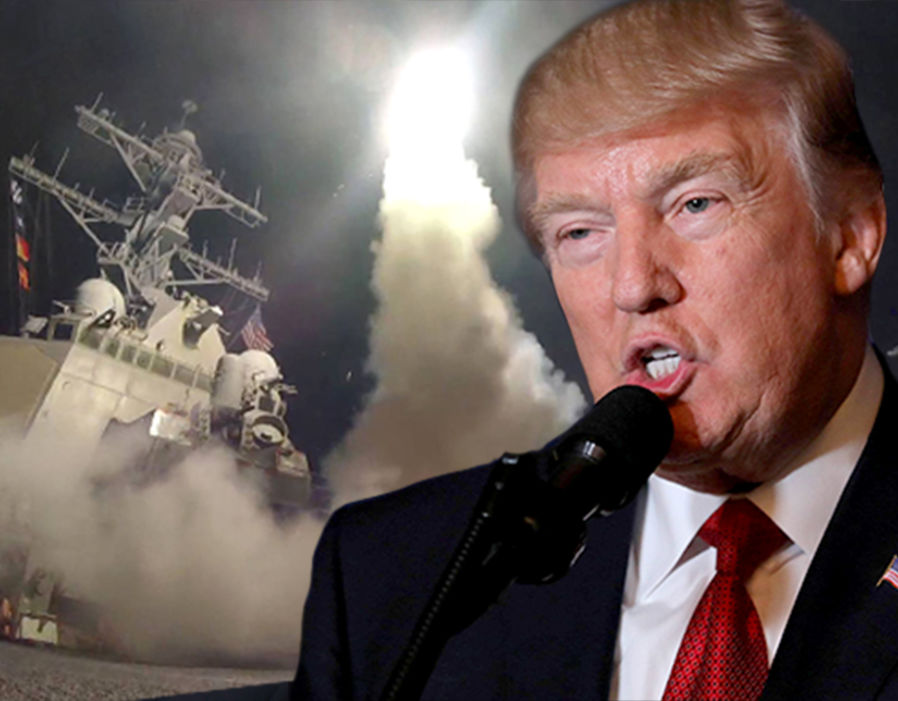
On a Possible US Military Attack against Syria
(Jordan) on 11 April 2018
by Fahed al Khitan (link to original)
Right now, however, attention is being directed toward the White House, where President Donald Trump has threatened harsh retaliation in response to the chemical attack in Eastern Ghouta. It is unlikely that the Trump administration will accept the Russian resolution at the U.N., convinced as the U.S. is that such a proposal constitutes an attempt by Moscow to procrastinate and thus buy time in order to avoid a military attack.
Trump, who until recently was an advocate of a swift withdrawal from Syria, re-emerged with the idea of a military strike against the Syrian regime and its allies, clearly signaling the turbulent state of American policy with regard to the Syrian crisis. Tuesday evening, Trump was supposed to have negotiated with his chief military advisors to determine the appropriate mode of retaliation, in coordination with Western allies in general and the French in particular.
As the Americans put it, the most likely scenario is a military strike against the Syrian army bases from which the planes were launched; in other words, another revenge operation similar to the one executed by Washington at beginning of the Trump administration. This would avoid embarking on an open confrontation which would place the United States in direct opposition to Russia and Iran.
Neither Washington nor Moscow are concerned about this level of escalation for the following two reasons: First, the dead end of having to carry the high cost of such a confrontation by both sides; and second, the U.S. having no alternative to the Russian scenario in Syria. Destroying the Syrian regime or toppling it by force translates into the rebirth of mayhem in Syria. In addition, Islamic State would regain its capabilities and organizational structure, wasting the gains achieved by the international coalition in Syria and Iraq which destroyed the Islamic State group and regained control over the most prominent cities which the group had previously controlled.
The era of military intervention in Syria has reached an end. This truth became clear to the regime’s opponents before any other entity, and was acknowledged publicly by Western and Gulf leaders. The problem in Syria is the absence of international consensus on a political solution. Moscow has a lot to offer and should move from administrating the crisis to finding a solution, as it has enough control in Syria to allow it to impose a plan for a political resolution.
Washington, on the other hand, has neither the capability nor the will, and is already aware of the fact that the Geneva path will not produce any political solution as long as there is no American- Russian consensus, something neither party is even close to reaching this point. For this reason, Trump will probably prefer to withdraw from Syria, and leave the task of finding a solution to the Syrian conflict in Russia’s hands. Trump’s intention to move toward a military strike is nothing but a necessary step toward covering up a withdrawal that is bound to happen in the near future.

